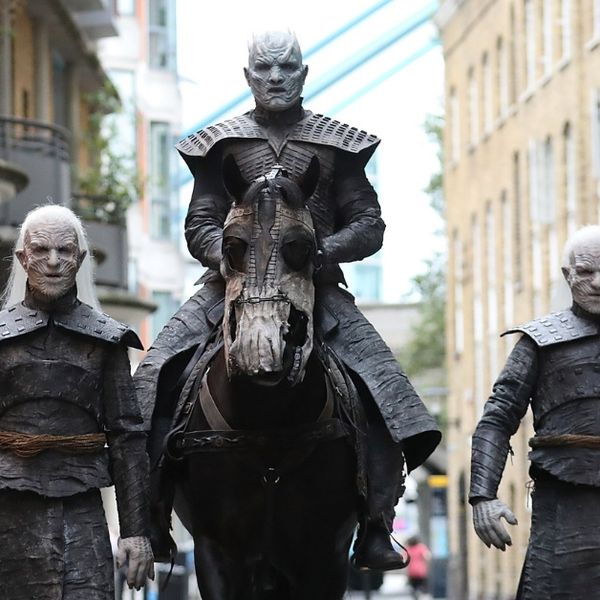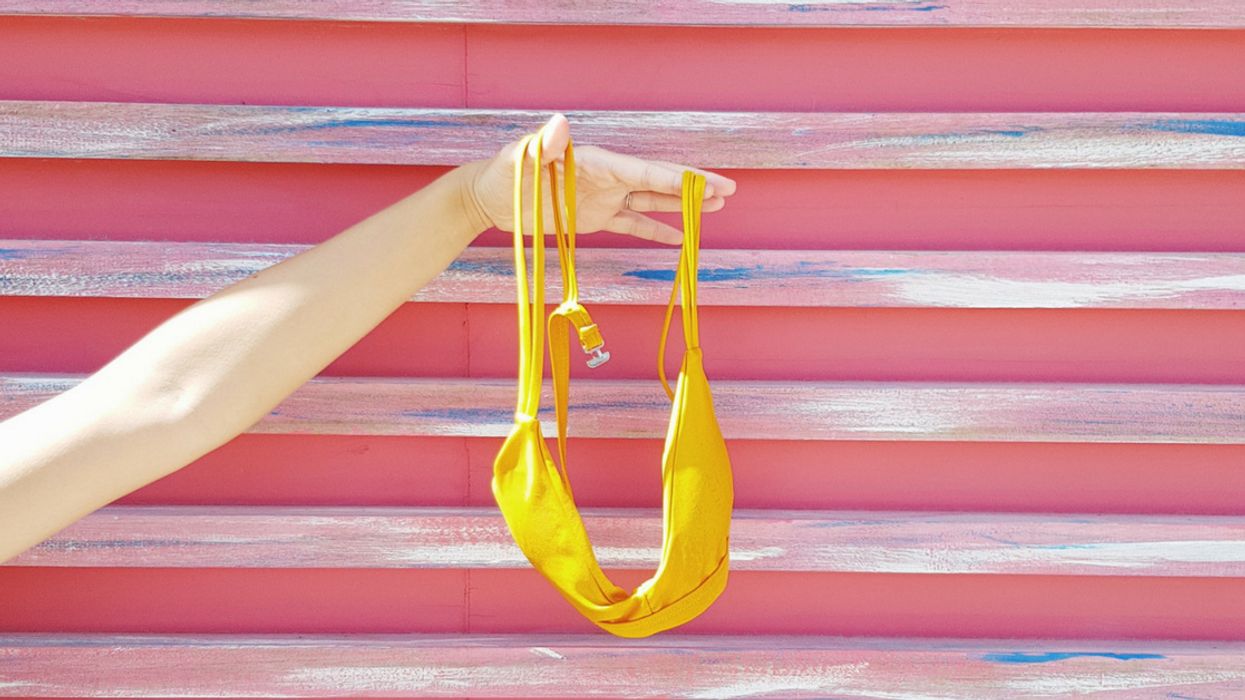May, 2002, LOS ANGELES - T. S. Eliot said, "April is the cruelest month." He meant it in the tragi-poetic sense of spring, the beginning of life, being the beginning of the suffering and sorrows that is an inescapable component of existence. The ultimate cruelty of life is death. In recent weeks I have lost two people - Nobu McCarthy and Fred Okrand -- who played important roles in my life.
 Nobu McCarthy was a lovely actress and a good friend. She played opposite me in my very first paying TV engagement, a role in the famed live television program "Playhouse 90" in 1958. I played a defeated Japanese soldier who returns to war-ravaged Japan only to discover that his betrothed, the character played by Nobu, had fallen in love with a GI with the American occupation forces, played by Dean Stockwell.
Nobu McCarthy was a lovely actress and a good friend. She played opposite me in my very first paying TV engagement, a role in the famed live television program "Playhouse 90" in 1958. I played a defeated Japanese soldier who returns to war-ravaged Japan only to discover that his betrothed, the character played by Nobu, had fallen in love with a GI with the American occupation forces, played by Dean Stockwell.
Nobu herself had only recently arrived from Japan as the bride of an American GI whom she had met and married in Tokyo. Her television role closely paralleled her own life. But she was untrained as an actress and halting in her command of English. Rehearsals were an arduous struggle for her. At first, Nobu's stunning beauty was what struck me. But as I got to know her better during rehearsals, I was impressed by her grit and will to grow as an actress. She worked with determination from first reading to dress rehearsals, and, by air-date, she was nervous but ready. Nervousness just made her that much sharper. She turned in a beautiful performance.
A few months later, we were again cast together, this time as lovers in an episode of "Perry Mason." She was wonderful. With diligence and determination, she continued her study, and, ultimately, transformed herself into a fine actress. And we became good friends. We saw each other often socially. But we didn't work with each other again until the early 90's when we did Philip Kan Gotanda's play "The Wash" in New York and Los Angeles. Again, we played lovers - but now as senior citizens. Nobu played a woman trapped in an unhappy marriage; I played a lonely widower. What a joy it was playing her lover in the autumn of the character's lives. It was bliss just being on stage with Nobu. She was now a consummate artist, as well she should be. She had a collection of distinguished achievements both on stage and on film. She had been much lauded for her moving performance in the television drama on the internment of Japanese Americans, "Farewell to Manzanar."
Nobu had added another dimension to her career as well. She had become a teacher and a cultural leader. She taught drama at California State University at Los Angeles and at my alma mater, UCLA. When the East West Players, America's oldest Asian American theater, was in turmoil in the early 90's, Nobu stepped in as Artistic Director and brought it stability and balance. Thanks to her efforts, East West Players today is a solidly established and respected theater company in Los Angeles. Nobu was playing a leadership role in the cultural life of the community.
I last saw Nobu two months ago at a press conference called by the lieutenant governor of California to announce the funding of a program to make video copies of her television film "Farewell to Manzanar" available to schools in California for educational purposes. Nobu was glowing with happiness. This program combined the two passions of her life, one as an artist and the other as an educator. It was wonderful to see her in such good high spirits.
Shortly after that press conference, Nobu flew to Brazil to work on a film on location. The next time I heard of Nobu was a phone call notifying me of her passing in Brazil.
* * * *
The other immeasurable loss is Fred Okrand. He was an attorney and an extraordinary fighter for justice who also had a unique Star Trek connection. His son, Marc, is the creator of the Klingon language.
I didn't meet Fred Okrand personally until Marc and I became friends during the filming of Star Trek III, The Search for Spock. But I knew of Fred Okrand since childhood. My father had talked of the attorneys who stood against the wind and challenged the internment of Japanese Americans during World War II. Fred was one of the few. He had been a principled, courageous, and lonely voice during that time of war hysteria. A lifelong advocate of civil liberties, he later became the Legal Director of the American Civil Liberties Union. Honored frequently for his work, Fred is the holder of the Justice Award of the Japanese American Citizens League and was named Lawyer of the Year by the Constitutional Rights Foundation. The ACLU also presented him with the Lifetime Achievement Award.
Through Marc I got to know Fred, not only as an iconic fighter for justice, but as a whimsically rugged individualist as well. His most striking idiosyncrasy was in his clothes. He wore checkered trousers with wildly contrasting sport shirts or pale pastel pants with colorful Hawaiian shirts. He was clad in his office as if he were on a golf course. And he literally whistled while he worked. With his round, smiling eyes beaming out from behind large, round spectacles, Fred exuded an irresistibly elfin charm. Facially, Marc is the youthful spitting image of his father, but in attire, Marc is much more restrained. In contrast to his father, Marc is downright drab. When at work, however, Fred was a single-minded workaholic. He preached, practiced, and wore on his body the freedom guaranteed in the First Amendment of the Constitution.
Throughout his illness, Fred never stopped working. At the time of his passing, he was co-counsel on another extraordinary class action lawsuit that went back to the unfinished business of World War II internment camps. Mochizuki versus U.S. is on behalf of over two thousand Japanese Latin Americans who were uprooted from their homes in Latin America and forcibly brought to and imprisoned in American internment camps during World War II. Japanese Americans had received apologies and redress from the U.S. government in 1988 but Japanese Latin Americans had not been included. Fred was continuing their battle for justice at the time of his death. Most fittingly, his memorial service was held in the stately Aratani Central Hall of the Japanese American National Museum. Fred Okrand's legacy is as strong and as magnificent a pillar of the U.S. Constitution as those elegant white marble columns at the entrance of the United States Supreme Court.
I will miss deeply the two wonderful people who passed away in recent weeks. But their legacies will always be with us to remind us of their magnificent work during the time they shared with us. Two beloved lives well lived, productively lived and importantly lived. May flights of angels sing thee to thy rest.
Woman Was Fired For Refusing To Wear A Bra At Work—And Now She's Suing
Christina Schell, from Alberta, Canada, stopped wearing bras three years ago citing health reasons.
While Schell did not specify the health reasons, she did state she finds them to be "horrible."
But after her refusal to sign or adhere to a new enforced dress code policy to wear a bra or tank top under her work shirt at a golf course grill where she worked, Schell was promptly fired.
Now, the 25-year-old has filed a human rights violation against the Osoyoos Golf Club, Osoyoos, in British Columbia, Canada.
Schell said:
"I don't think any other human being should be able to dictate another person's undergarments."
When she asked the general manager, Doug Robb, why she had to comply, the manager told her the mandate was for her protection.
Robb allegedly said:
"I know what happens in golf clubs when alcohol's involved."
After losing her job, she brought the case to the British Columbia Human Rights Tribunal and told them the club's dress code was discriminatory because the rule didn't apply towards male employees.
Schell told CBC:
"It's gender-based and that's why it's a human rights issue. I have nipples and so do the men."
David Brown, an employment lawyer in Kelowna, BC, said gender-specific dress codes could be viewed as discriminatory under the BC Human Rights Code.
He stated:
"It's an interesting question as to whether or not an employer can dictate the underwear that women can wear, but they don't say anything about the underwear that men can wear, and does that create an adverse impact on the individual?"
Brown added:
"If this policy is found to be discrimination, the next question is does the employer have a bonafide occupational requirement to essentially impose this on the individual?"
"I'm kind of scratching my head as to what that occupational requirement would be."
@GlobalBC The policy is sexist the peopl supporting it are sexist. Hope she wins her complaint— Lori bell (@Lori bell) 1529692660.0
@Shelby_Thom @WoodfordCHNL @GlobalOkanagan @GlobalBC Then men should have to wear either a tank top or undershirt— caffene fiend (@caffene fiend) 1529624161.0
@SoldByBrock @Shelby_Thom @GlobalOkanagan @GlobalBC What does common courtesy have to do with wearing a bra? Breast… https://t.co/ZVI2xDdpgf— M Shumway (@M Shumway) 1529843759.0
As for the tank top option, due to working under oftentimes extreme heat serving tables outsides, Schell did not want to wear another layer of clothes just because of her gender.
Schell said:
"It was absurd. Why do you get to dictate what's underneath my clothes?"
Employment lawyer Nadia Zaman told CBC that the club can enforce a gender-specific policy as they deem necessary as long as the establishment can prove it is for the occupational safety of its workers.
But the attorney questioned if forcing female employees to wear a bra was applicable in this case.
Zaman stated:
"If they simply require that female employees wear a bra but then they don't have a similar requirement for males, and they can't really justify that … then there is a risk that their policy's going to be deemed to be discriminatory."
Under British Columbia's discrimination law, it is illegal for employers:
'to discriminate against any individual because of his race, color, religion, sex, or national origin'.
@GlobalBC @globalnews Logistically bras or the absence of does not impact health or work performance. That is my v… https://t.co/65cLHBMowf— Louisette Lanteigne (@Louisette Lanteigne) 1529769211.0
McDonald's employee Kate Gosek, 19, agrees with Schell in that the dress code is "unnecessary." She too was harassed by her employers at a McDonald's in Selkirk, Manitoba, over refusing to wear a bra.
"She just told me that I should put on a bra because, McDonald's—we are a polite restaurant and no one needs to see that."
Schell's case sparked plenty of debates on Twitter.
@DunnMan77 @GlobalBC It's just discriminatory, woman shouldn't have to wear bras if they don't want to. As well as… https://t.co/RXhRVWUuNy— Mary Johnson (@Mary Johnson) 1529685276.0
@DunnMan77 @GlobalBC Men do not have to wear underpants if they don't want to. As of right now there are no laws to… https://t.co/l8FuPVybWo— Mary Johnson (@Mary Johnson) 1529686418.0
@GlobalBC Women have the right not to be forced to wear a bra Shaving & makeup also is a choice. If you want to do… https://t.co/Ybkj6PLDnD— Lozan (@Lozan) 1529686156.0
@Lozan72 @GlobalBC I would completely understand her and your argument if we were talking about a potential law to… https://t.co/trRyNAubn4— Chris George (@Chris George) 1529690293.0
@GlobalBC This story frustrates me. There's no dress code equivalent for men? Well if I saw the outline of a male s… https://t.co/5YbAvXKRcO— Molly Max (@Molly Max) 1529705327.0
Schell is not alone in her disdain for bras.
@GlobalBC I personally HATE wearing a #bra absolutely hate it with passion and unashamed to admit it. I HATE BEING… https://t.co/GEi3LtxIDa— Lozan (@Lozan) 1529686305.0
Schell is still waiting to hear from the Human Rights Commission about her claim.
H/T - GettyImages, Twitter, Indy100, CBC












